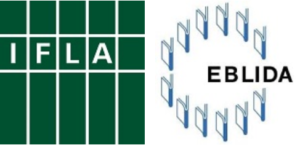 Joint statement by the Internaiontal Federation of Library Associations and the European Bureau of Library, Information and Documentation Associations (Link, CC-BY)
Joint statement by the Internaiontal Federation of Library Associations and the European Bureau of Library, Information and Documentation Associations (Link, CC-BY)
IFLA and EBLIDA sincerely wish to be able to welcome wholeheartedly the compromise agreement on the Marrakesh Treaty Directive reached on 10th May by representatives of the Council of Ministers, the Commission and the Parliament. However, together with the European Blind Union, we reject entirely the notion in the agreement that the fundamental public interest activities of non-profit libraries and charities in creating and sharing accessible format books may, in some Member States, give rise to ‘compensation’ to rightholders.
The EU’s ratification of the Marrakesh Treaty should be making a major contribution to the ending of the book famine in Europe and globally. However, realising this will require an effective supporting infrastructure of libraries and other non-profit organisations to work to serve people with print disabilities. These institutions are essential to the implementation of the Treaty’s provisions for creating and sharing the accessible format copies of books that have, to date, been in such short supply from publishers.
Much of the compromise text represents a good implementation of the Treaty in the EU. There are undeniable positives, such as the rejection of proposals for unworkable rules on checking the commercial availability of books, as well as of illegal bureaucratic requirements for libraries and charities to register as authorised entities.
However, the decision to allow governments the option to implement ‘compensation’ schemes that impose additional costs on libraries and charities is a major mistake. It was the publishing industry’s persistent failure to provide books in accessible formats to print disabled people at the same price and the same time as to everyone else that made the Treaty necessary in the first place.
Such schemes will reduce the ability of libraries and charities to serve print disabled people, despite the conditions in place. In addition to the costs of creating and storing a variety of accessible format publications so that visually impaired people can for the first time read all publications, such schemes will now force libraries and charities to make additional payments to publishers.
The insistence of the Council of Ministers on permitting such provisions, in the face of a clear and unambiguous rejection by both the Commission and Parliament, reflects a discredited and narrow economic understanding of copyright, of libraries, and of the lack of a publishing market in accessible format copies. It cynically disregards broader social and human rights objectives and does specific damage to the interests of print disabled people and the institutions that serve them.
Where compensation schemes are introduced, they will be a clear attack on the interests of visually impaired people within the Member State concerned, with impact further afield in the rest of Europe and around the world.
The International Federation of Library Associations and Institutions (IFLA) is the leading international body representing the interests of library and information services and their users. It is the global voice of the library and information profession. Contact: Stephen.wyber@ifla.org
The European Bureau of Library, Information and Documentation Associations (EBLIDA) is an independent umbrella association of library, information, documentation and archive associations and institutions in Europe. Contact: Vincent.bonnet@eblida.org




